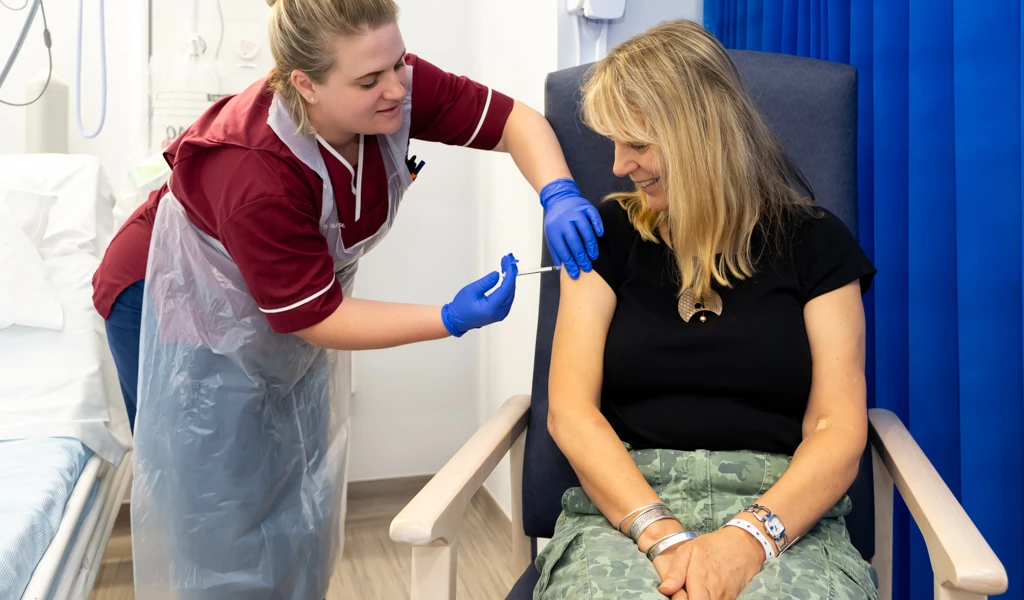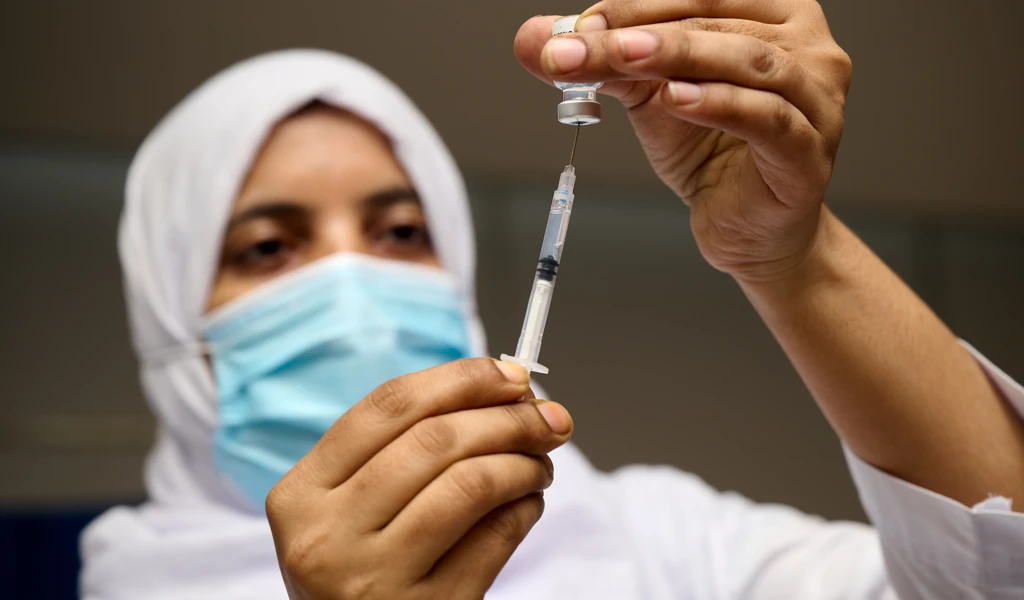CEPI and Universiti Malaya announce new collaboration to advance Nipah virus research

July 29 2021, Oslo, Norway and Kuala Lumpur, Malaysia — The Coalition for Epidemic Preparedness Innovations (CEPI) has partnered with Universiti Malaya (UM), Malaysia, to further research and scientific understanding into the Nipah virus - one of the deadliest pathogens known to infect humans.
Under the new partnership, CEPI will provide up to US $188,000 in funding to support UM's work to collect biological material from Nipah survivors to characterize and better understand immune responses generated against the virus. As Nipah outbreaks are typically sporadic with few survivors, the work is set to provide critical new information on Nipah immunology that has not previously been studied, such as looking at the types of immune cells (eg, T cells and antibody-secreting cells) involved in responding to the virus, with an emphasis on "memory" cells.
To carry out the research, UM will collaborate with physicians and healthcare workers who responded to the first-ever documented Nipah virus outbreak in Malaysia in 1998/1999. Occurring over two decades after the event, the work is therefore set to play a key role in documenting long-term evidence on Nipah survivor biology, including studying the level of long-term immunity maintained over time.
The biological material collected from survivors will also speed up the development of vaccine tests (known as assays) and reference tools, like an international antibody standard, which could be used by vaccine developers to assess and compare the performance of future Nipah vaccines, including those funded by CEPI.
This effort will advance one of CEPI's goals, announced as part of its $3.5bn plan, in March, 2021, to bring a Nipah vaccine, or other biological countermeasure, to licensure. It will also support CEPI's aim to enhance and expand global collaboration by working with UM and entities within the region to build a more robust and effective global preparedness and response architecture.
Nipah virus remains a deadly risk to South and Southeast Asia and it is pivotal that we continue to progress our scientific knowledge of this epidemic threat.
I am therefore delighted to welcome UM to the coalition, providing CEPI and the global scientific community with critical information to aid our understanding of the virus. As Malaysia was the country where the Nipah virus was first discovered back in 1998, this new partnership will also provide us with a unique opportunity to better understand and learn from the historical, scientific, and cultural aspects surrounding the initial response to a previously unknown pathogen.
A deadly epidemic threat
Nipah virus is a potentially fatal zoonotic disease, spread to people by interaction with Pteropus bats (flying foxes)—the natural hosts of the virus—as well as infected pigs or humans, or through contaminated food or food products, like bat-bitten fruit or date palm sap, contaminated with bat excreta. Infection can cause severe, rapidly progressive illness that affects the respiratory system and the central nervous system, including inflammation of the brain (encephalitis).
After its discovery in 1998/1999 through an outbreak in pigs and pig farmers in Malaysia and Singapore, where over 100 human deaths were reported, the virus has continued to spread over thousands of kilometres to Bangladesh and India, causing severe disease and recorded mortality rates of between 40 and 90%. One of the most recent outbreaks in Kerala, India, in 2018 claimed 17 of the 19 infected with the disease. There is also concern of the virus spreading more widely given that Pteropus bats are found across regions of Africa, South Asia and Oceania that are home to more than two billion people.
Given its epidemic potential, the World Health Organization's (WHO) R&D Blueprint lists Nipah virus as an emerging infectious disease in need of urgent R&D action.
Advancing Nipah vaccines
With no vaccines or specific therapeutics approved for human use, CEPI is leading efforts to better protect against Nipah virus with four candidate vaccines in its portfolio, including Auro Vaccines and PATH's vaccine candidate — the first Nipah vaccine to be tested in humans. Further testing, assessing the safety of and immunogenicity elicited by these vaccine candidates, is set to take place over the next few years.
Research conducted by the UM Team will therefore be important for these later-stage (Phase II and beyond) Nipah vaccine trials through increasing understanding of how the body naturally elicits an immune response to the virus and comparing this to the level of protection elicited by vaccines under development. The biological material collected from Nipah survivors will also be used for the development of an antibody standard, a tool developed to act as a set reference point to assess whether a vaccine under clinical evaluation is likely to be a ‘good' vaccine (inducing a sufficient immune response in vaccinated individuals)*.
Results on the studies will be shared through open-access publications and via scientific meetings with vaccine developers (including both CEPI-funded and non-CEPI funded developers) to ensure all can benefit from the research.
The biological material collected from Nipah survivors will be used for the development of an interim antibody standard with the expectation to develop a subsequent international standard. Already existing for other diseases, including COVID-19, an antibody standard is a pool of serum samples from patients who have been infected and recovered from a disease, developed to act as a ‘gold standard' to assess whether a vaccine under clinical evaluation is likely to be a ‘good' vaccine (inducing a sufficient immune response in vaccinated individuals)*.
Through evaluating trial samples relative to a set reference point (the antibody standard), vaccine makers can have confidence in the immunogenicity levels produced by their vaccine candidates, while also allowing research groups to make comparisons between the different COVID-19 vaccines in development.
Since then, UM and the UMMC team have contributed enormously to many of the breakthroughs in understanding of the Nipah virus, thus laying the foundation for the control of future outbreak and management of the patients. The many valuable lessons learnt in the fight against Nipah virus have positioned Malaysia in the forefront, especially in addressing topics pertaining to infectious diseases and vaccine development.
UM is committed to communicating and sharing knowledge with an open-minded approach to collaborative research that will contribute to global knowledge transfer and societal well-being, in line with UM's tagline "Serving the Nation, Impacting the World”. Therefore, UM looks forward to the collaborative research with CEPI in developing Nipah antibody standards and vaccines.
The agreement between CEPI and the UM may subsequently be expanded to include further investigation into viral immunology and/or to extend the development of internationally endorsed tools to assess Nipah vaccine performance.
*The biological material collected from Nipah survivors will be used for the development of an interim antibody standard with the expectation to develop a subsequent international standard. Already existing for other diseases, including COVID-19, an antibody standard is a pool of serum samples from patients who have been infected and recovered from a disease, developed to act as a ‘gold standard' to assess whether a vaccine under clinical evaluation is likely to be a ‘good' vaccine (inducing a sufficient immune response in vaccinated individuals).
Through evaluating trial samples relative to a set reference point (the antibody standard), vaccine makers can have confidence in the immunogenicity levels produced by their vaccine candidates, while also allowing research groups to make comparisons between the different COVID-19 vaccines in development.
ENDS
Notes to Editors
Further information on Nipah virus and CEPI's new partnership
CEPI has signed an Implementing Partner Agreement with UM. Through the agreement, CEPI will be involved and contribute to the success of the following general areas: characterization of immune responses in Nipah survivors, development of Nipah virus (Malaysia strain) antibody standard, development of Nipah T cell assays, monoclonal antibody development, studies on immune correlates of protection, collaboration with entities in the region, collaboration with CEPI-funded developers, epidemiological surveillance, assay technology transfer to other laboratories, and advice from the Malaysian experience in conducting clinical trials with early medical countermeasures against Nipah virus disease.
Any biological material provided by participating Nipah survivors will be collected under informed consent.
Further information about Nipah virus infection can be found on our website.
In 2019, CEPI co-hosted the first ever international Nipah virus conference with Duke NUS Medical School in Singapore to discuss innovative and effective solutions to combat the threat to global health security posed by Nipah virus.
About CEPI
CEPI is an innovative partnership between public, private, philanthropic, and civil organisations, launched at Davos in 2017, to develop vaccines against future epidemics. Prior to COVID-19 CEPI's work focused on developing vaccines against Ebola virus, Lassa virus, Middle East Respiratory Syndrome coronavirus, Nipah virus, Rift Valley Fever virus and Chikungunya virus - it has over 20 vaccine candidates against these pathogens in development. CEPI has also invested in new platform technologies for rapid vaccine development against unknown pathogens (Disease X).
During the current pandemic, CEPI initiated multiple programmes to develop vaccines against SARS-CoV-2 and its variants with a focus on speed, scale and access. These programmes leverage the rapid response platforms previously developed by CEPI's partners prior to the emergence of COVID-19 as well as new collaborations. The aim is to advance clinical development of a diverse portfolio of safe and effective COVID-19 candidates and to enable fair allocation to these vaccines worldwide through COVAX.
CEPI's 5-year plan lays out a $3.5 billion roadmap to compress vaccine development timelines to 100 days, develop a universal vaccine against COVID-19 and other Betacoronaviruses, and create a "library" of vaccine candidates for use against known and unknown pathogens. The plan is available at endpandemics.cepi.net.
Follow our news page for the latest updates. Follow us on Twitter and LinkedIn.
About UM
UM is the country's first university. Following the passing of the University of Malaya Act in 1961 by Parliament, UM was recognised as a public university. UM, as it is known today, was officially made a public university in the Federation of Malaya on 1 January 1962.
UM is supported by two academies, thirteen faculties, three institutes and three academic centres that encompass medicine, science, technology, social sciences and humanities. The university also houses Malaysia's first and biggest teaching hospital - UMMC. In addition, the Research Cluster had been formed to drive further breakthroughs in knowledge. The emphasis on research is strengthened by the presence of centres of excellence at several of its learning centres.
UM continues to consolidate and solidify its position in both the national and international arenas. It stands among the world's top universities, ranking 65th in the Quacquarelli Symonds (QS) World University Rankings 2022, retaining its place in the global top-100 universities for a fourth consecutive year.
Contact Details
CEPI Press Office
+44 7387 055214
[email protected]
Mdm. Mastura Mohamad Yusoff
Media Relations Officer
Corporate Communications Office, Universiti Malaya
[email protected] / [email protected]
013-3773207


